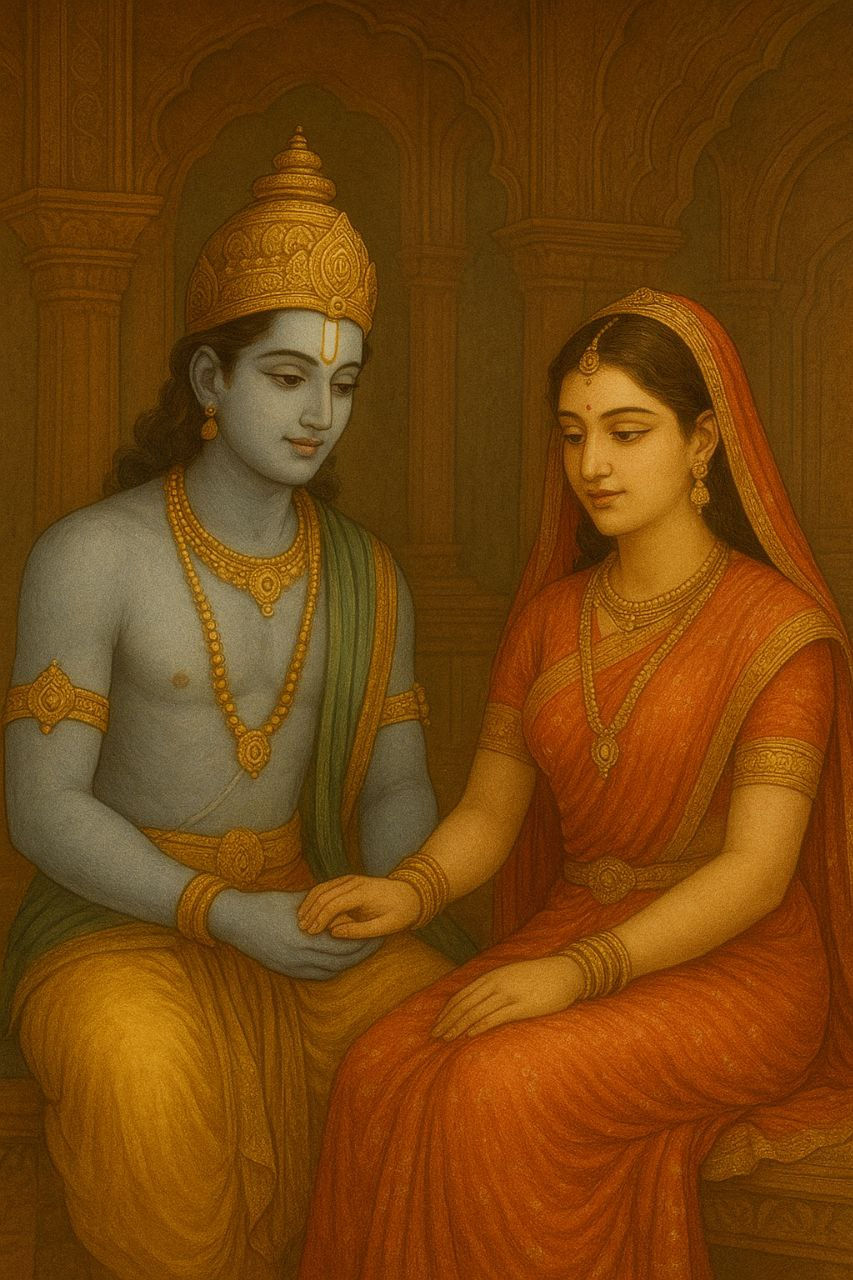The Conclusion of Bala Kanda (Ramayana Series 13)
- Dheemahi Connect

- Aug 17, 2025
- 2 min read
After Parashurama departed for Mount Mahendra, the serene-hearted Shri Rama entrusted the divine Vaishnava bow and arrow to Varuna, who had come with the gods to witness the great duel. Then, bowing respectfully to Sage Vasishta and the other great rishis, Rama noticed his father King Dasharatha still heavy with concern. He gently reassured him, saying: "Father, the son of Jamadagni has left. Now, let the army under your care march back towards Ayodhya."
Hearing these comforting words, King Dasharatha’s heart overflowed with joy. With both hands he embraced Rama tightly, kissing his forehead with deep affection. It felt to him as if both he and his son had been blessed with a new life. At once, Dasharatha ordered the Chaturanga army to proceed, and together they swiftly returned to Ayodhya.
As soon as they entered the city, the people, led by the Brahmanas, welcomed the king and princes with garlands and flowers. In the royal palace, Queen Kausalya, Sumitra, Kaikeyi, and the other noble women made preparations to receive the new brides—Sita, Urmila, Mandavi, and Shrutakirti—into their homes. After the traditional rituals, the queens performed arati and welcomed the brides with kumkuma and auspicious blessings.
Thus did Rama, Lakshmana, Bharata, and Shatrughna enter the sacred life of grihasthashrama (householder’s stage) through their marriages. By then, their training in the art of archery was complete, and all four princes had become masters of dhanurvidya (science of the bow). They spent their days joyfully, devoted to serving their father and elders.
Some days later, King Dasharatha said to Bharata:"My son, your maternal uncle Yudhajit, the son of the Kekaya king, has come to take you to your grandfather’s court."
Bharata, along with Shatrughna, agreed to go with Yudhajit to Kekaya. The king of Kekaya received his grandsons with great joy. Meanwhile, Rama and Lakshmana remained in Ayodhya, lovingly serving their father like divine sons. They never showed negligence in any duty, taking care of the well-being of their parents, teachers, and citizens alike.

Because of Rama’s gentle nature, noble conduct, and steadfast dharma, King Dasharatha’s affection for him grew ever deeper. The Brahmanas, the Vaishyas, and all the people of Kosala were delighted under Rama’s righteous and compassionate ways. Among the four sons of Dasharatha, Rama shone the brightest—celebrated everywhere as the embodiment of truth, valor, and virtue, equal to Brahma himself amidst all creation.
Time passed blissfully as Rama and Sita enjoyed the joys of married life together. Rama’s mind remained ever steady, bound in love only to Sita. She was his supreme beloved, and her beauty, virtue, and devotion made his love for her grow with every passing moment. Likewise, Rama’s divine qualities and charm made Sita’s heart shine with twice the love.
So perfect was their bond that Rama’s every thought would at once be known to Sita, and Sita’s every feeling would flow into Rama’s heart. Just as Lord Vishnu reigns with Goddess Mahalakshmi beside him, so did Rama shine with Sita by his side—content, blissful, and supreme among men.
Thus concludes the Bala Kanda.





Comments